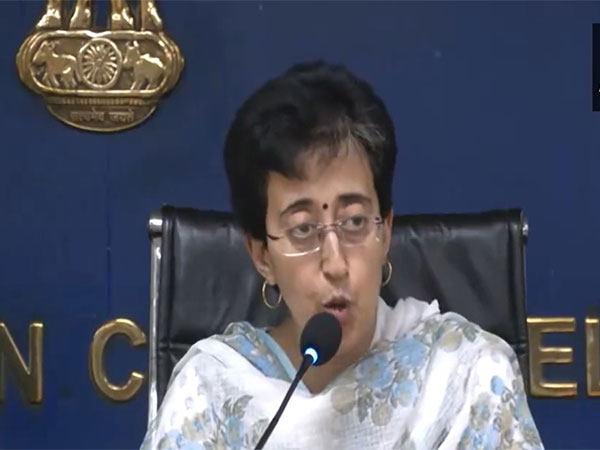New Delhi [India], June 28 (ANI): The Delhi government held an emergency meeting in view of heavy rains and waterlogging in the national capital on Friday. The meeting was held at the Delhi Secretariat.
Following the meeting, Delhi Minister Atishi said that an emergency meeting was attended by all senior officials of the government and several important decisions were taken.
“…We conducted an emergency meeting regarding the waterlogging issue due to the heavy rainfall. It was chaired by 4 ministers of the Delhi government… It was attended by all the senior officials of the Delhi government. We made several important decisions for the upcoming days…,” Atishi said speaking at a press conference.
Atishi said that the Delhi government has identified 200 hotspts which are prone to waterlogging. She said that the reason behind waterlogging is excessive rainfall which is more than the capacity of drains.
“We have identified around 200 hotspots till the last rain. Out of these, 40 hotspots are under CCTV surveillance by PWD… You have to understand that if Delhi receives rainfall of 228 mm, then it will take time to decrease the water level… Right now, Delhi has received more rainfall than the capacity of the drains. That’s why we are witnessing waterlogging at several places…,” she said.
Delhi Minister Saurabh Bharadwaj said that several decisions were taken in the meeting to tackle water logging in the national capital.
“The Traffic Police and area representatives have been told to identify the vulnerable areas for waterlogging and make a list of it. The Chief Secretaries have been told to review the list of all the departments… There are a lot of areas that witness waterlogging due to inter-departmental issues… It will be constantly monitored…,” Bharadwaj said.
Earlier in the day, Bharadwaj shared that the national capital last received so much rain in 1936.
“Delhi has received heavy rainfall in the last 24 hours. I was reading the weather report that there has never been so much rain in the month of June after 1936…,” Delhi Urban Development Minister Saurabh Bharadwaj told ANI before the meeting.
Delhi Lieutenant Governor VK Saxena also convened an emergency meeting of all the concerned agencies of the Delhi government, including the Delhi Jal Board (DJB), Public Works Department (PWD), Irrigation and Flood Control Department (IFC), Delhi Police, Municipal Corporation of Delhi (MCD), National Disaster Management Control (NDMC), Delhi Development Authority (DDA).
The meeting was conducted to review the situation arising in the city due to waterlogging, overflow of unsilted drains and the backflow of the clogged sewer lines in the wake of the pre-monsoon rains in city.
He also reviewed the preparedness and emergency response of the various departments to deal with the situation, considering that the monsoon season is still yet to fully settle.
The LG took serious note of the lack of preparedness for the emergency response system in the eventuality of excessive rainfall and resultant water logging across the city.
He further stated in the meeting that the desilting works had not been completed and the Flood Control Order had not been issued.
Additionally, he issued 11 directions for immediate action. Key directions included a 24×7 emergency control room to be established with the control room number to be issued to the public for reporting waterlogging incidents, the utilisation of mobile pumps, traffic police to issue regular advisories in case of waterlogging, and the Irrigation and Flood Control Department to be in regular touch with the counterparts in Haryana and upper parts of Himachal Pradesh to assess the rainfall levels and discharges from the Hathnikund barrage.
Earlier today, people wadded through the waterlogged streets in several parts of the city and BJP councillor Ravinder Singh Negi was seen rowing an inflatable boat on the NH9 road as a symbolic protest against the AAP government.
According to the Indian Meteorological Department, the Safdarjung observatory in the city recorded 228 mm of rainfall till 8:30 am today. According to statistics, it marks the second-highest 24-hour rainfall in the month of June, after 235.55 mm on June 28, 1936. (ANI)
Disclaimer: This story is auto-generated from a syndicated feed of ANI; only the image & headline may have been reworked by News Services Division of World News Network Inc Ltd and Palghar News and Pune News and World News
HINDI, MARATHI, GUJARATI, TAMIL, TELUGU, BENGALI, KANNADA, ORIYA, PUNJABI, URDU, MALAYALAM
For more details and packages
















